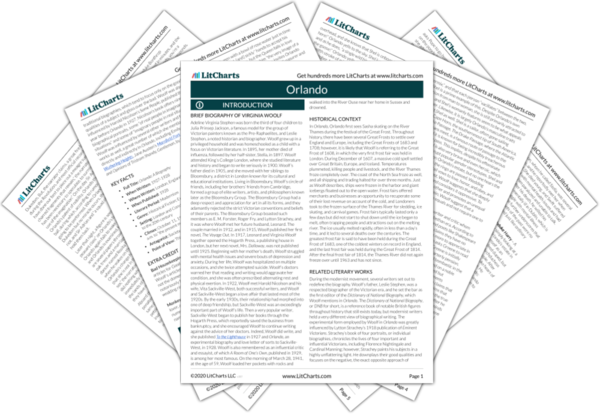Orlando’s escape to the park is further evidence of her connection to nature, which is an essential aspect of her identity. Woolf is also poking fun at Emily Brontë’s
Wuthering Heights, in which the main character recalls her love of the moor she was born on in a feverish delirium. Woolf was greatly influenced by Brontë (she mentions her in the preface), and Orlando’s run in the park is a sort of parody of Brontë’s novel.
